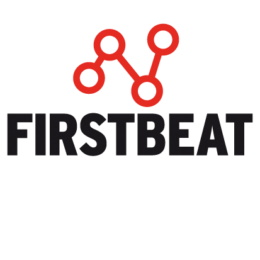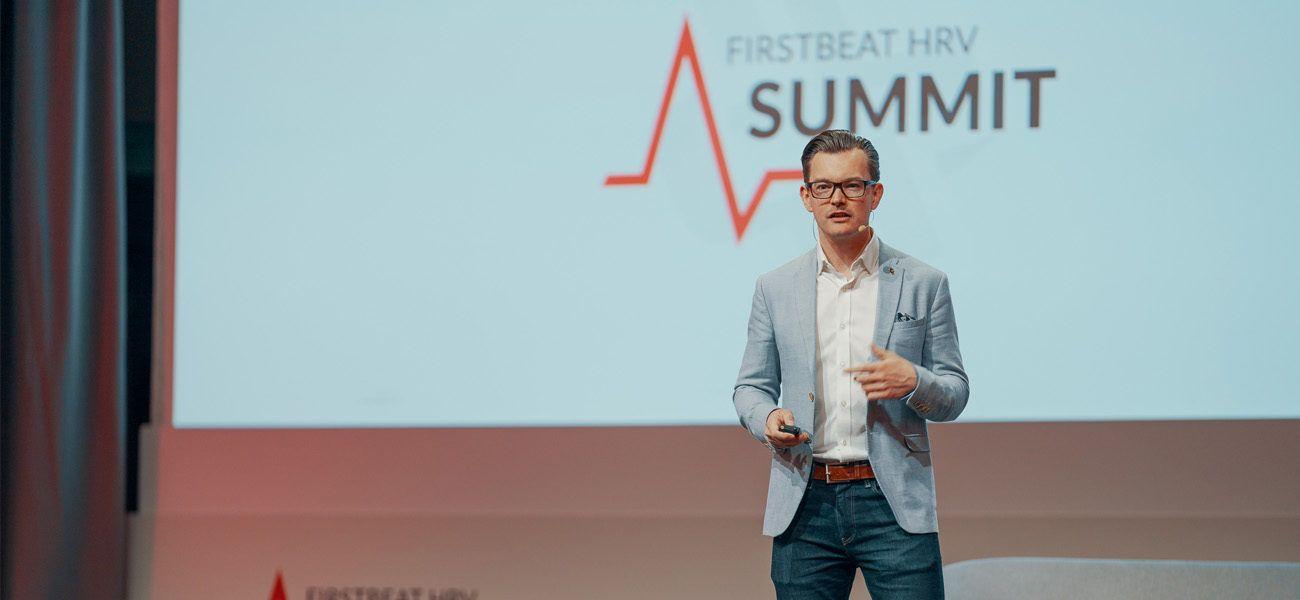
The annual Firstbeat HRV Summit brings together experts and top professionals from around the world to explore how analysis of heart rate and heart rate variability data can be deployed in new and better ways to help individuals reach their health and performance potential with science-backed confidence.
This year, the Firstbeat HRV Summit 2019’s Stress & Resilience session welcomed speakers from Finland, the United Kingdom, Denmark and Hungary. Tiina Hoffman spoke about Firstbeat’s solutions to lifestyle management. Jason Howlett of Manpremo then discussed data’s role in forming positive habits, James Hewitt of Hinsta Performance investigated the “myth” of burnout, and former fighter pilot Harri Gustafsberg spoke about enhancing performance under pressure. The session concluded with a panel on staying resilient under pressure.
Tiina Hoffman, Firstbeat
Stress isn’t always bad. In the short term, it is a natural reaction which improves mental and physical performance in the short term. Chronic stress, however, weakens well-being and our ability to function. The key to resilience is finding a balance between stress and recovery.

Firstbeat’s analytics allow you to see how your body is responding to daily life and view these results in context. Personalized data means you can see whether you are achieving supercompensation of life, i.e. recovering enough to recharge your batteries.
Fitness is a good facilitator of resilience. Research shows the more fit you are, the greater the recovery during sleep. Alcohol has the reverse affect.
Jason Howlett, Manpremo
Failure to manage our resources leaves us at risk of becoming impulsive and making wrong decisions. Constantly suffering from depleted resources prevents us from unlocking executive cognitive functions that optimize performance.
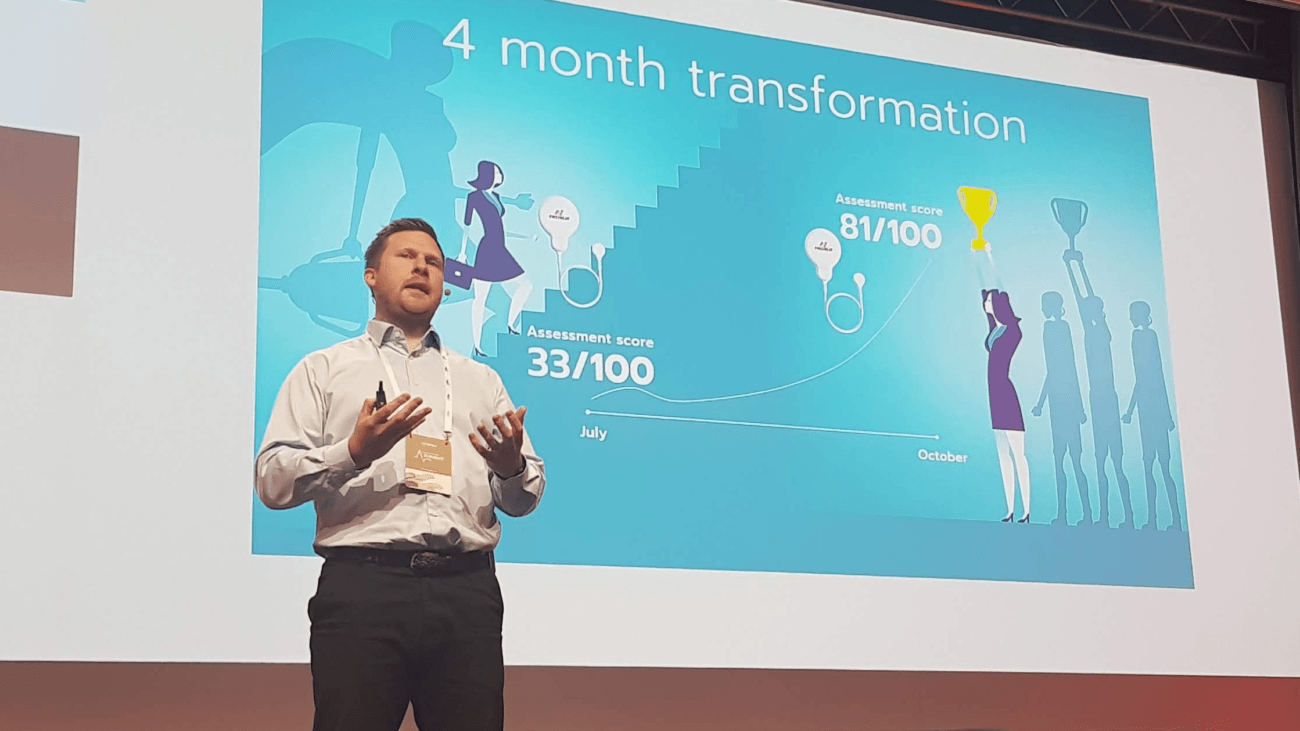
Everyone reacts differently to certain situations. Data allows us to be aware of our personal situation and discover what behaviors allow us to thrive.
Employers have a responsibility to introduce a positive culture which encourages and supports change. This helps form habits and self-management over time.
James Hewitt, Hintsa Performance
Instead of being concerned with whether machines are going to take our jobs, the real issue is making sure we don’t start working like machines. We can’t always be ‘on’, so it is important to find and follow your own rhythm and try to incorporate that into the way you work.
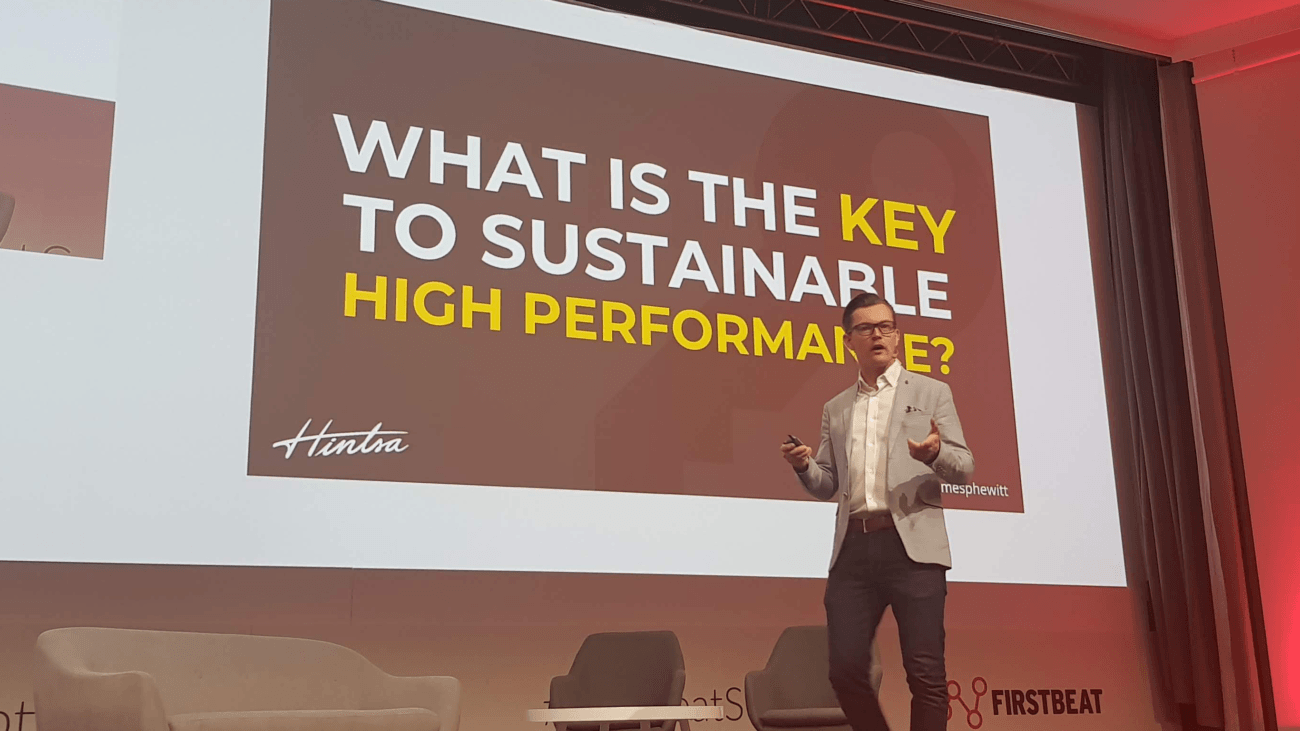
We should think of knowledge work as an endurance activity and take lessons from elite athletes to form a plan for cognitive endurance that lets us boost performance and increase resilience. This requires planning and incorporating low (rest and recovery), medium (menial tasks), and high gear (focus and analysis) activity into your weekly rhythm.
The idea of a ‘work-life balance’ should be considered as a dynamic state and we should aim to manage it within our own personal range. This means recognizing when it is appropriate to go ‘all in’ and when we should prioritize recovery depending on our own situation.
Harri Gustafsberg, Mentoritiimi
The connection between body and mind should not be underestimated and it is important to remember how we can influence our quality of life by introducing a positive mindset and creating habits that have a positive impact. Fine turning the body and mind are key building blocks towards a positive state of action.
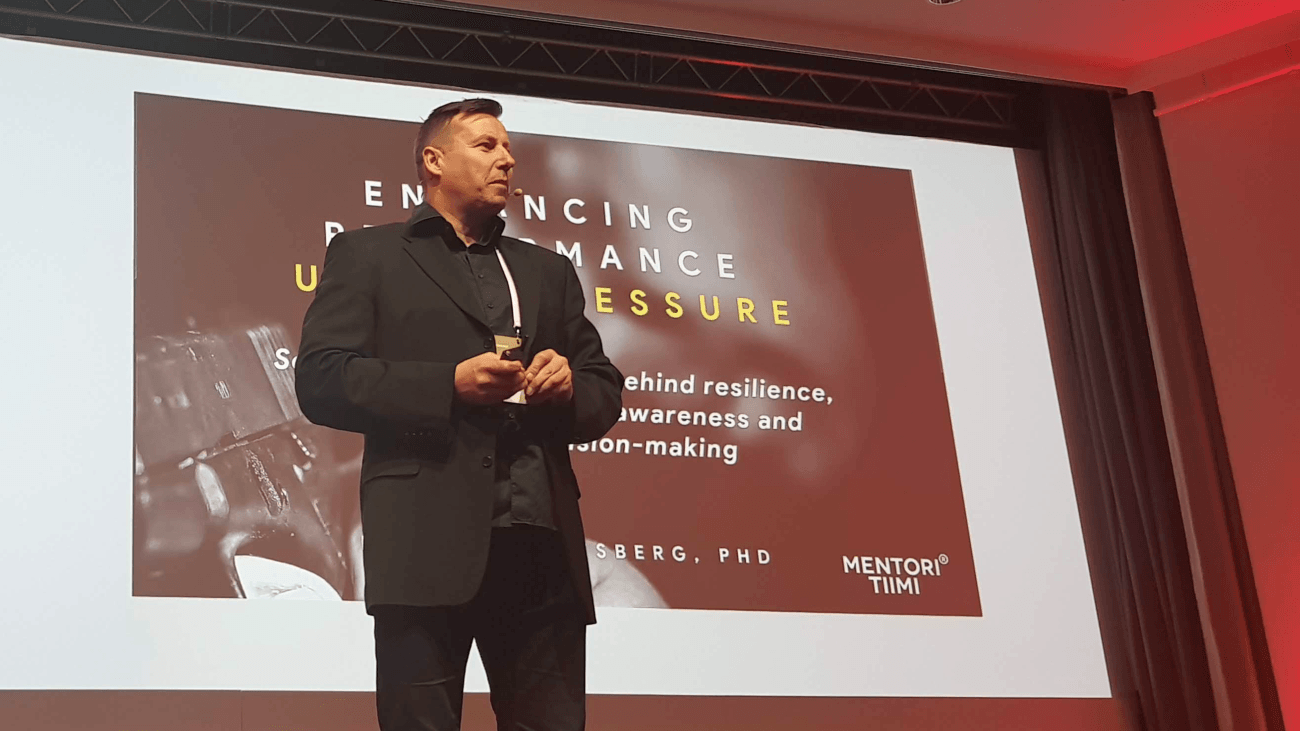
In order to improve decision-making, it is important to ask yourself three questions. What is the role you are playing? What is the purpose of your goal? What is significant?
Do you want to find your balance? Firstbeat Life can help.
You might also be interested in

Balancing Good and Bad Wellness Choices: How to Get it Right?
Finding the balance between good and not-so-good choices is about what works for you.

Rest Is Not the Same as Recovery – And 4 Other Surprising Things I’ve Learned About Resilience
What Firstbeat’s Heart Rate Variability analytics can tell you about resilience.
